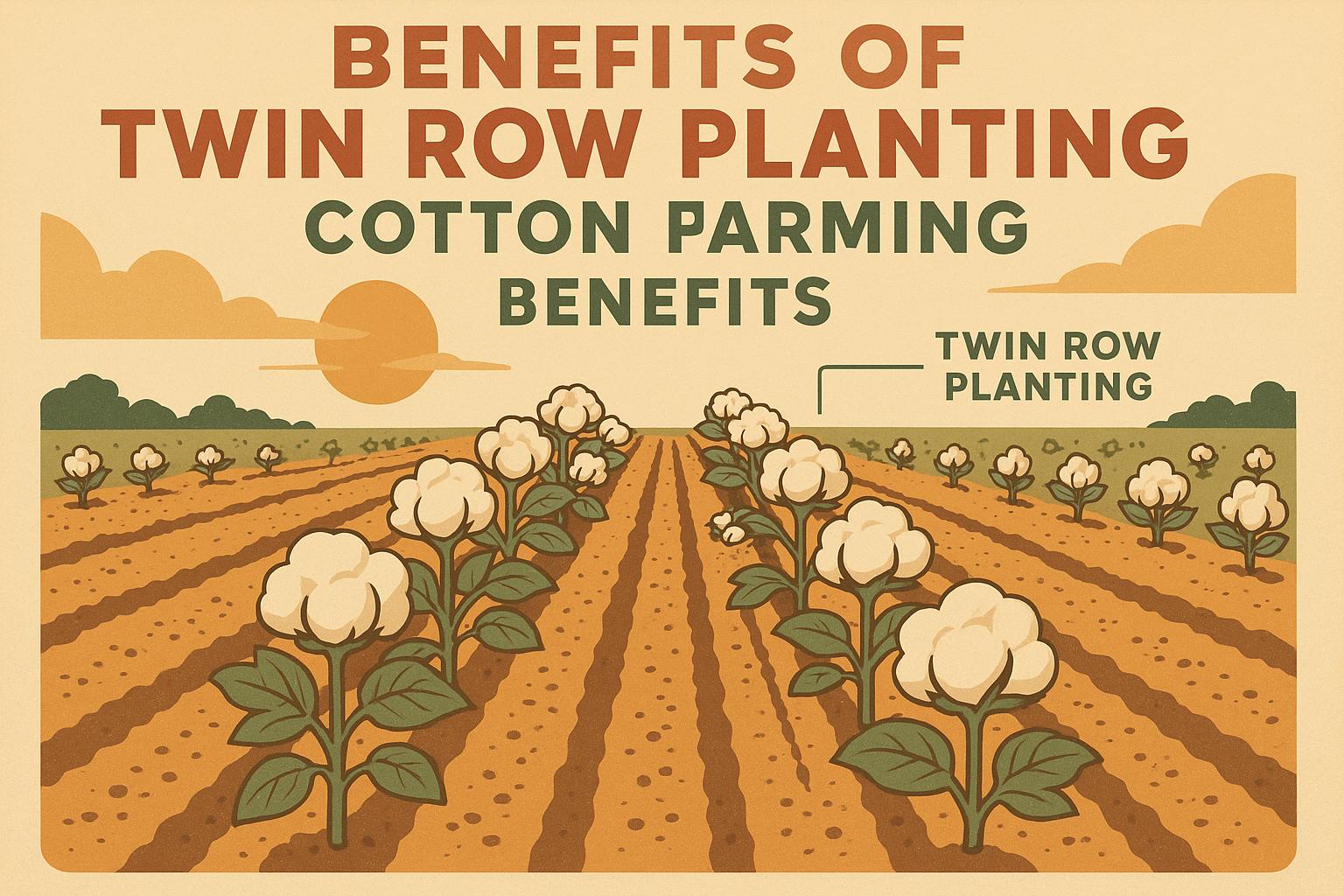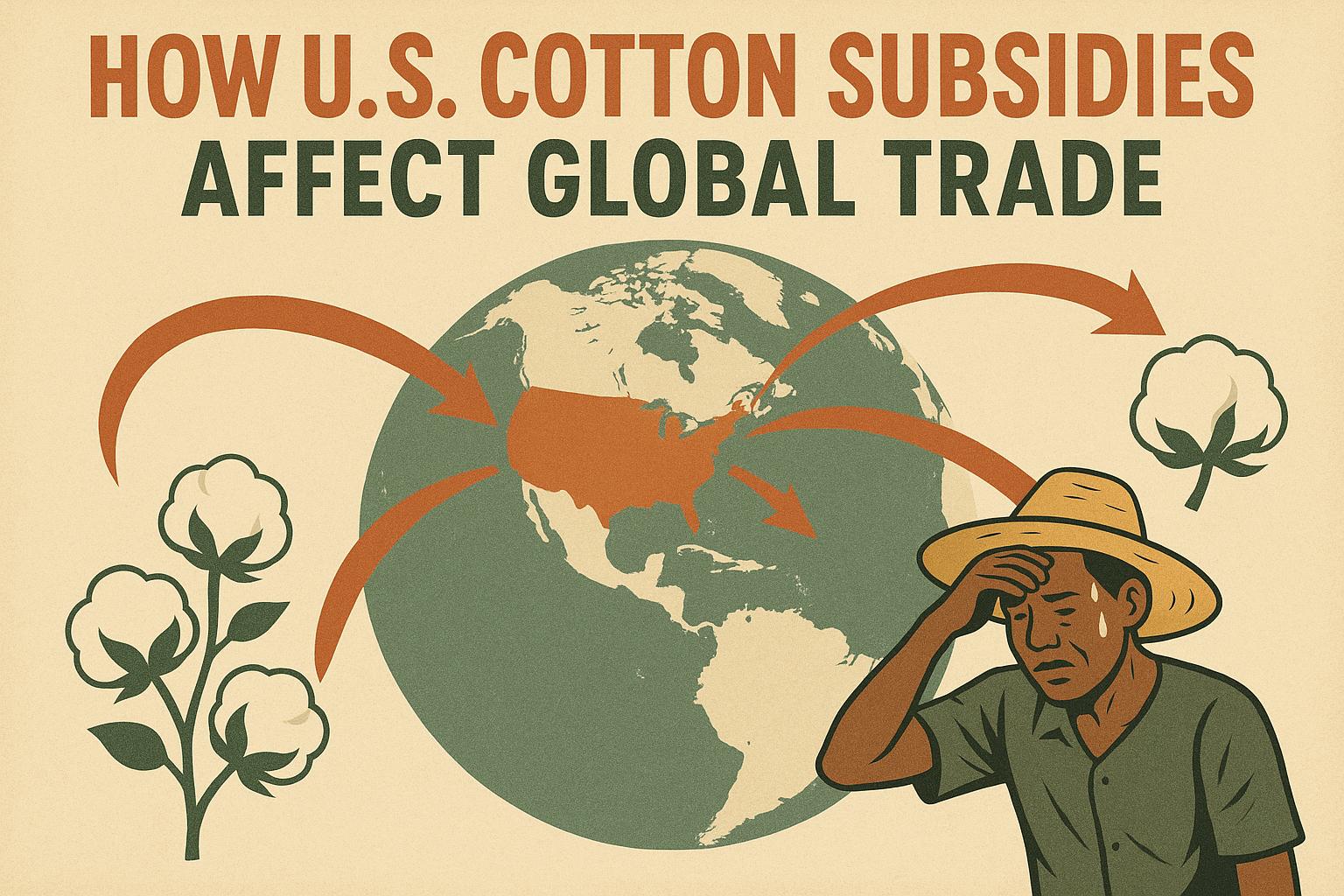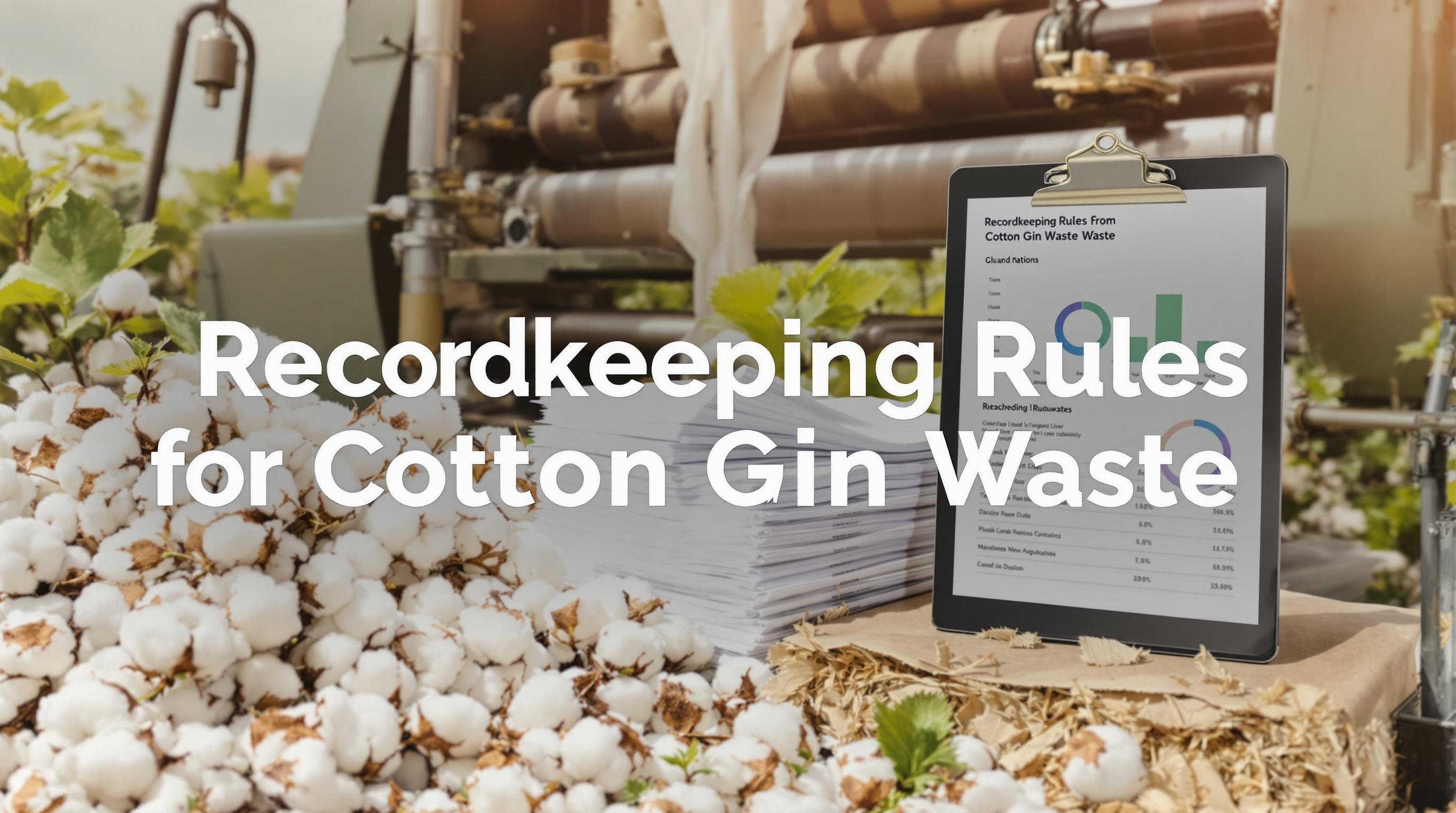Sustainability is reshaping cotton marketing worldwide, with the U.S., India, and Brazil adopting distinct approaches to meet consumer and regulatory demands. Here's the key takeaway: Sustainability-focused strategies are essential for competitiveness in the global cotton market.
Key Points:
- United States: Emphasizes supply chain transparency, certifications, and advanced technology like digital tracking for sustainability verification.
- India: Focuses on organic farming, water efficiency, and fair trade practices, tailored to regional needs.
- Brazil: Prioritizes precision agriculture and resource management to reduce environmental impact and attract eco-conscious buyers.
Quick Comparison:
| Country | Key Strategies | Challenges |
|---|---|---|
| United States | Certification, tech integration, transparency | High implementation costs |
| India | Organic farming, water use, fair trade | Regional variation in practices |
| Brazil | Precision agriculture, resource management | Limited global visibility |
Actionable Steps for U.S. Producers:
- List operations on platforms like cottongins.org for visibility.
- Collaborate with local operators to share sustainable practices.
- Use certifications and technology to build trust with buyers.
Sustainability isn't just a trend - it's now a requirement for staying relevant in the cotton industry. Dive deeper into how each country is adapting these practices to meet global demand.
WEBINAR: Sustainable Cotton Production and Certification
1. United States Market
The U.S. cotton market has shifted its focus to sustainability, driven by growing consumer interest. This shift has led to the adoption of several key strategies.
Supply Chain Transparency
Transparency is now a cornerstone of the U.S. cotton industry. Producers use established gin networks to ensure traceability from the farm to the finished fabric. This approach helps build trust with buyers who want detailed insights into the cotton's journey through the supply chain.
Certification Standards
American cotton producers are adopting strict certifications to highlight their commitment to responsible practices. These certifications emphasize:
- Environmental care
- Ethical production methods
- Fair labor practices
- Efficient resource use
Stronger Buyer Relationships
Focusing on sustainability has redefined relationships with buyers, creating closer connections through ethical practices.
Here’s a quick look at how sustainability marketing is structured in the U.S. cotton market:
| Marketing Component | Implementation Strategy | Market Impact |
|---|---|---|
| Supply Chain Visibility | Digital tracking systems | Builds buyer confidence |
| Environmental Standards | Third-party certifications | Positions cotton as premium |
| Production Transparency | Practice documentation | Increases buyer trust |
Technology Integration
Advanced technology plays a big role in verifying sustainability claims. Producers are using these tools to:
- Track and minimize environmental impact
- Provide verified sustainability data
- Maintain high quality while conserving resources
These technological advancements are now a key part of marketing efforts, showcasing the U.S. cotton industry's dedication to sustainable practices and its reliability as a global supplier.
2. Indian Market
India's cotton industry is moving toward more sustainable practices. The focus is on incorporating eco-friendly methods, supported by policies and certifications that encourage responsible farming.
Producers are working on initiatives like organic certification, better water use, improving soil health, and adopting fair trade practices. These efforts aim to ensure responsible production while also appealing to international markets with a clear sustainability message.
Digital tools are playing a key role by improving supply chain transparency. These tools help stakeholders understand production methods and build trust with global buyers.
Approaches differ across regions. Some areas prioritize drought-resistant crops and advanced irrigation techniques, while others focus on organic farming and precision agriculture. These localized strategies aim to reduce environmental impact while addressing specific market demands.
Accurate performance tracking and independent verification are critical for promoting these efforts. They help establish credibility within the domestic market and strengthen India's position in global cotton trade. These region-specific practices highlight the varied approaches to sustainability across the country.
sbb-itb-0e617ca
3. Brazilian Market
In Brazil, cotton producers are shifting their strategies to focus on more sustainable practices. They are using methods like precision agriculture and better resource management to make water use more efficient, preserve soil quality, and lower their overall impact on the environment.
These efforts not only support responsible resource use but also make Brazilian cotton more attractive to buyers who prioritize eco-friendly products. This shift mirrors a global movement in agriculture, where producers are working to balance profitability with responsible practices.
Market Comparison Results
U.S. cotton gin operations have integrated advanced tools for conserving water, managing soil health, and using digital monitoring systems. According to data from cottongins.org, these efforts highlight a strong commitment to sustainability. This level of performance stands out compared to the less-documented methods in other parts of the world.
In contrast, countries like India and Brazil are making efforts in sustainability, but there’s a lack of solid data detailing their specific strategies. More research is needed to understand their practices and assess their economic and environmental effects. This lack of information makes it harder for stakeholders to gain a clear view of global sustainability efforts.
Next Steps and Recommendations
U.S. cotton marketers can take practical actions to improve sustainability and strengthen their industry presence. Here’s how:
- List your cotton gin on cottongins.org: This helps boost your visibility and build connections across the U.S. cotton industry.
- Engage with local cotton gin operators: Use cottongins.org to share ideas on sustainable practices and align on supply chain efforts.
- Sponsor content on cottongins.org: Showcase your brand and highlight your commitment to sustainable cotton production.
- Subscribe to updates from cottongins.org: Stay informed about industry trends and new sustainable practices, ensuring you're ready to seize market opportunities.


